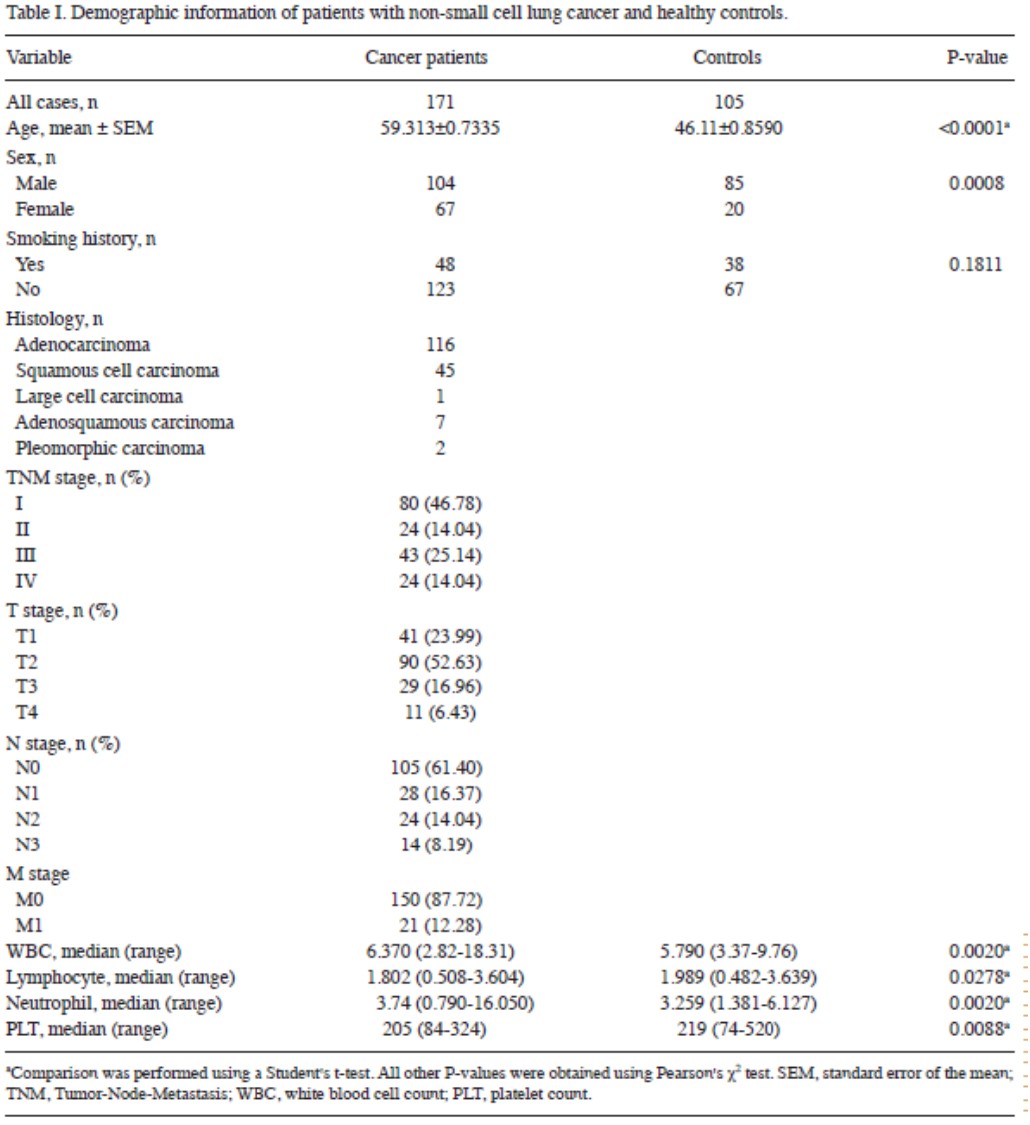Neutrophil-to-lymphocyte and platelet‑to‑lymphocyte ratios may aid in identifying patients with non‑small cell lung cancer and predicting Tumor‑Node‑Metastasis stages.
FEI XU#, PENGLIANG XU#, WENQIANG CUI, WEIYI GONG, YING WEI, BAOJUN LIU* and JINGCHENG DONG*
ONCOLOGY LETTERS
Abstract
The present study aimed to identify a high‑risk population with non‑small cell lung cancer (NSCLC) and to predict TNM stages using the neutrophil‑to‑lymphocyte ratio (NLR) and the platelet‑to‑lymphocyte ratio (PLR). This retrospective study included preoperative data of 171 patients and 105 controls. Compared with healthy controls, patients with NSCLC had higher levels of NLR and PLR (NLR, 2.719±0.183 vs. 1.813±0.079, P<0.01; PLR, 135.800±4.778 vs. 112.000±5.651, P<0.01, respectively). The associations between Tumor‑Node‑Metastasis stages and the aforementioned parameters were detected (both P<0.01). NLR and PLR improved the rate of early diagnosis of NSCLC, particularly for stages III and IV with a higher area under curve value (0.752 and 0.759, respectively) compared with stage I and II NSCLC. In addition, PLR with a T stage‑dependent increase may be a potential and independent predictive marker for T stage (P<0.05); the NLR exhibited an N stage‑dependent increase (except for stage N3) and was identified as a marker for N stage (P<0.0001). It was subsequently concluded that NLR and PLR are useful biomarkers in the early diagnosis of NSCLC; that these two parameters were capable of indicating advanced stages, III and IV; and that PLR and NLR were independent predictors for T and N stages, respectively.



